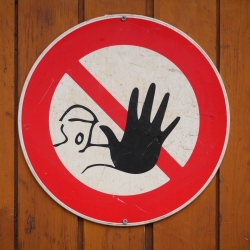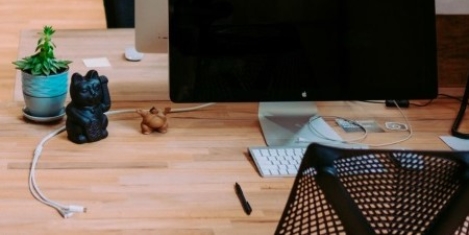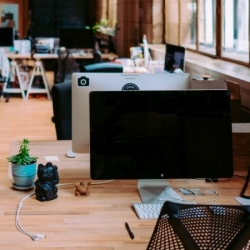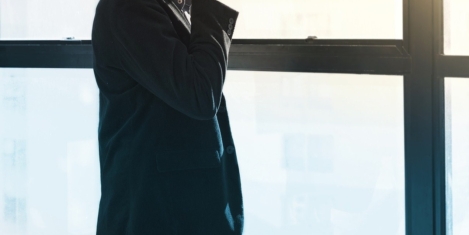To provide the best experiences, we use technologies like cookies to store and/or access device information. Consenting to these technologies will allow us to process data such as browsing behaviour or unique IDs on this site. Not consenting or withdrawing consent, may adversely affect certain features and functions.
The technical storage or access is strictly necessary for the legitimate purpose of enabling the use of a specific service explicitly requested by the subscriber or user, or for the sole purpose of carrying out the transmission of a communication over an electronic communications network.
The technical storage or access is necessary for the legitimate purpose of storing preferences that are not requested by the subscriber or user.
The technical storage or access that is used exclusively for statistical purposes.
The technical storage or access that is used exclusively for anonymous statistical purposes. Without a subpoena, voluntary compliance on the part of your Internet Service Provider, or additional records from a third party, information stored or retrieved for this purpose alone cannot usually be used to identify you.
The technical storage or access is required to create user profiles to send advertising, or to track the user on a website or across several websites for similar marketing purposes.
 A recent report from Culture Shift, claims that almost all (91 percent) of employees across the UK say that knowing their employer takes bullying and harassment complaints seriously is an important factor to their overall happiness at work. One-quarter (25 percent) say their employer could improve its culture and be more inclusive by providing a platform to speak out about bullying and harassment. (more…)
A recent report from Culture Shift, claims that almost all (91 percent) of employees across the UK say that knowing their employer takes bullying and harassment complaints seriously is an important factor to their overall happiness at work. One-quarter (25 percent) say their employer could improve its culture and be more inclusive by providing a platform to speak out about bullying and harassment. (more…)








 The physician can bury his mistakes,—but the architect can only advise his client to plant vines. Frank Lloyd Wright’s eternal epigram is not just true for buildings. It also applies to the authors of books, especially those on the subjects most affected by this year’s pandemic. Speakers and blog writers can quietly inter the things they get wrong, while the book sits unchangeable on a shelf. Maybe behind a houseplant.
The physician can bury his mistakes,—but the architect can only advise his client to plant vines. Frank Lloyd Wright’s eternal epigram is not just true for buildings. It also applies to the authors of books, especially those on the subjects most affected by this year’s pandemic. Speakers and blog writers can quietly inter the things they get wrong, while the book sits unchangeable on a shelf. Maybe behind a houseplant.
 The majority of students don’t expect they will be able to find a clear career path after graduating and almost one in 10 believes their prospects are ‘bleak’, a new survey claims. A poll of 1723 poll students conducted by UNiDAYS and insurance company
The majority of students don’t expect they will be able to find a clear career path after graduating and almost one in 10 believes their prospects are ‘bleak’, a new survey claims. A poll of 1723 poll students conducted by UNiDAYS and insurance company 
 Unused office space after coronavirus could cost London-based businesses almost £13 billion according to a new report by
Unused office space after coronavirus could cost London-based businesses almost £13 billion according to a new report by 
 New analysis published by the
New analysis published by the 
 The construction sector, the real estate industry and city planners must give high priority to the same goal – to drastically reduce their climate impacts. Powerful, combined efforts across all of the built environment sectors are absolutely crucial for the potential to achieve the UN’s sustainability goals. And what’s more – everything has to happen very quickly. These are the cornerstones to a roadmap presented at the recent
The construction sector, the real estate industry and city planners must give high priority to the same goal – to drastically reduce their climate impacts. Powerful, combined efforts across all of the built environment sectors are absolutely crucial for the potential to achieve the UN’s sustainability goals. And what’s more – everything has to happen very quickly. These are the cornerstones to a roadmap presented at the recent 
 The pandemic has totally shattered workplace norms, so it’s going to take a while before we see organizations returning to work at full capacity. When it does happen, it will require extensive planning and constantly evolving styles of people management. In addition to the logistics of phasing people back into the office and staggering shifts, you’ll need to work with your team to address their anxieties and make sure they feel comfortable in their environment.
The pandemic has totally shattered workplace norms, so it’s going to take a while before we see organizations returning to work at full capacity. When it does happen, it will require extensive planning and constantly evolving styles of people management. In addition to the logistics of phasing people back into the office and staggering shifts, you’ll need to work with your team to address their anxieties and make sure they feel comfortable in their environment. 
 For a lot of employers, the idea of an employee financial wellness program can be something of an afterthought. That is, beyond providing fair pay and a clear policy regarding taxation and benefits, it can seem unnecessary to take any other action regarding employee finances. What’s becoming more and more apparent, however, is that employers do need to take a more active approach toward implementing employee financial wellness programs.
For a lot of employers, the idea of an employee financial wellness program can be something of an afterthought. That is, beyond providing fair pay and a clear policy regarding taxation and benefits, it can seem unnecessary to take any other action regarding employee finances. What’s becoming more and more apparent, however, is that employers do need to take a more active approach toward implementing employee financial wellness programs. 
 In times of economic stability, entrepreneurs who exude self-confidence are the most likely to thrive. However, when faced with unstable and adverse economic conditions, those entrepreneurs who possess greater resilience are most likely to come out on top, according to new research from
In times of economic stability, entrepreneurs who exude self-confidence are the most likely to thrive. However, when faced with unstable and adverse economic conditions, those entrepreneurs who possess greater resilience are most likely to come out on top, according to new research from 












November 12, 2020
Stepping back into the workplace arena
by Rachel Houghton • Comment